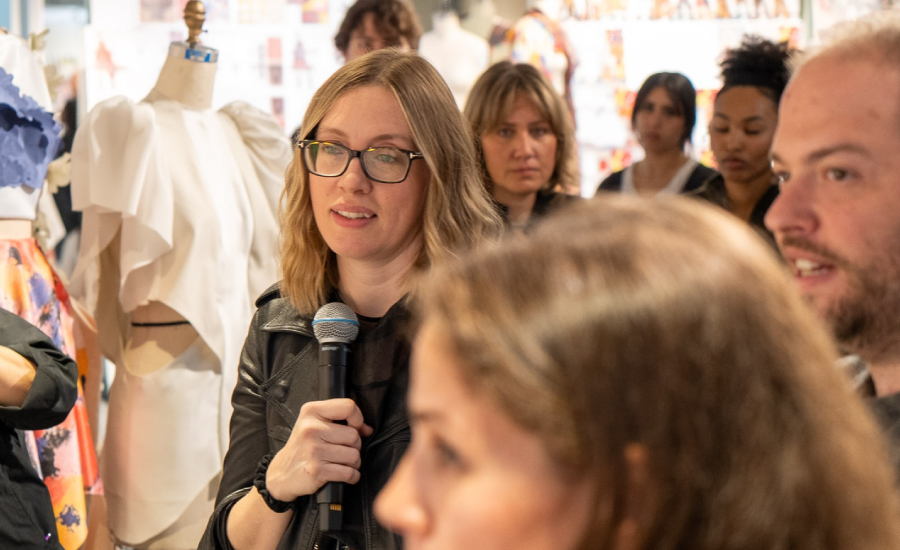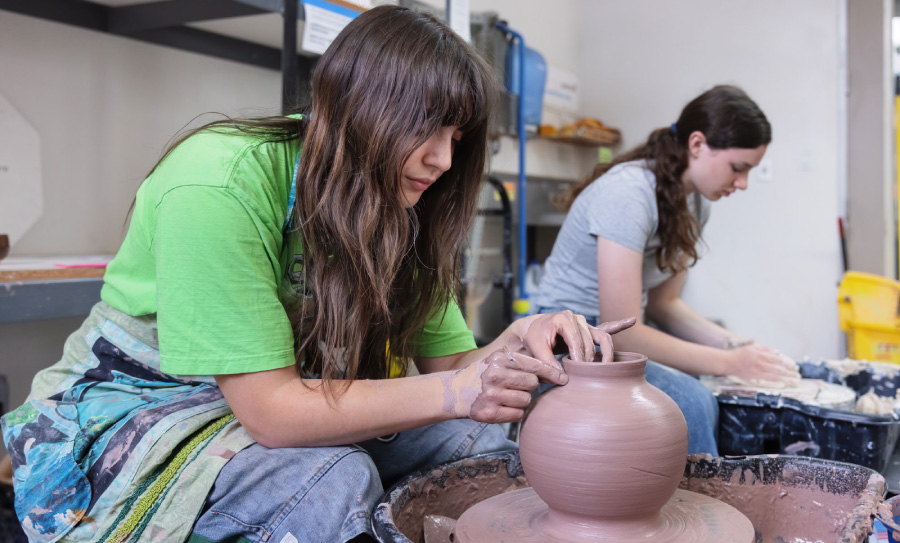From a Student’s Perspective: Five Tips to Get the Most Out of a Portfolio Review
Avery Plummer, a senior in the Game and Entertainment Design program at Otis College, offers advice on how to prepare for a portfolio review.

So you have a portfolio review coming up? First, congratulations. And second, don’t be nervous. This is a great opportunity and way to connect with colleges, industry professionals, and fellow artists. Getting feedback can be a bit of a nerve-racking experience but with the right mindset and preparation, it can be a valuable one. I’m going to share five tips to help you feel more prepared and make the most out of your review.
Tip #1: Curate and Refine Your Portfolio
Before your review, take some time to carefully curate your work. Because portfolio reviews tend to move rather quickly, it’s better to focus on a selection of pieces that represent you best rather than everything you have ever created. Choose work that highlights your strengths, demonstrates clear skillsets, and reflects the art you enjoy creating. It’s also helpful to think about your audience. Are you meeting with a college admissions counselor, an animation studio artist, or a game designer? Researching who will be reviewing your work can help you decide which pieces are the most relevant to show. This extra step demonstrates thoughtfulness and professionalism on your part. It also helps the reviewer understand your skillset and goals right from the start.
Tip #2: Practice Talking About Your Work
You need to be able to talk clearly and confidently about your work. Before your review, take time to discuss the piece and how you want to present it. Think about the story behind the work: What inspired it? What were your goals? What challenges did you face and how did you overcome them? Rehearsing beforehand will help you stay concise and thoughtful during the actual review. When you know what to say, you will sound more confident, and that confidence will help the reviewer better understand your artistic process and perspective.
Tip #3: Listen and Be Open to Feedback
One of the most important aspects of the review is the feedback you receive. If the reviewer allows, try to take notes. Reviews move fast and it can be difficult to remember specific suggestions once the excitement and nerves settle. Writing things down will not only help you remember what to improve, but also shows the reviewer you genuinely care about their insight. If something they say isn’t clear, don’t be afraid to ask for clarification. Most reviewers will appreciate thoughtful questions. And above all, remember to stay respectful and open minded. The reviewer is taking time out of their day to help you grow. Demonstrating your appreciation goes a long way.
Tip #4: Follow Up
Within a few days, make sure to email a thank you message to the person who reviewed your work. This doesn’t have to be a long message, but it should express your appreciation and maybe highlight one specific piece of feedback you found helpful. Following up shows professionalism and gratitude, and it also helps you stand out as someone who is serious about their work. Your message can create a positive connection that could be helpful later, whether you’re applying for college, seeking mentorship, or entering the industry.
Tip #5: Apply Feedback
After your review, take time to reflect on the feedback you received. Think about which suggestions will help elevate your portfolio and make you a stronger artist. Once you’ve made these changes, you can even consider reaching back out to your reviewer to show them how you’ve improved. This is completely optional, but it demonstrates that you listened to their feedback and cared enough to take the time to make the changes.
I hope these tips make you feel more confident, prepared, and excited for your next portfolio review. With a little preparation and an open mind, I’m certain you’ll have a great experience. Good luck, you’ve got this!
Want to schedule a portfolio review with an Otis College admissions counselor before you apply?
Schedule online at www.otis.edu/appt.
About Avery

Avery Plummer is a senior in the Game and Entertainment Design program at Otis College with a minor in Creative Writing.
She specializes in 3D character art and works as a student ambassador for the College. In her free time, she enjoys playing video games and spending time with friends.
Related News



